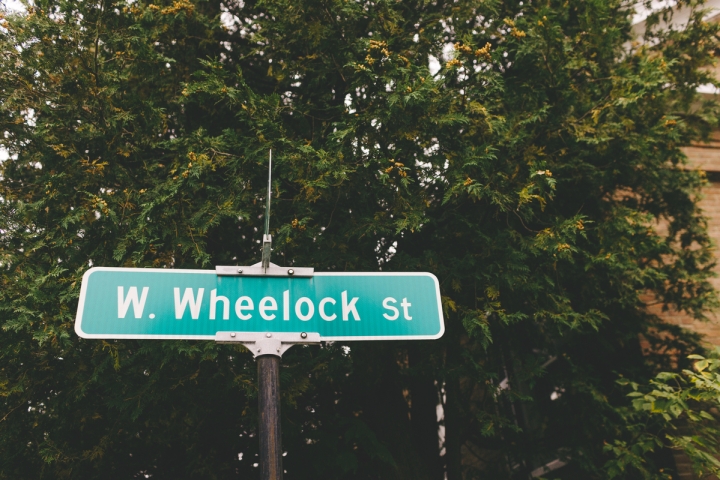In her Inaugural address last week, President Sian Leah Beilock announced “the single largest investment in Dartmouth’s residential learning experience in more than a generation,” calling for the institution to add at least 1,000 new beds for undergraduates, graduate students, faculty, and staff within the next 10 years—with a commitment to break ground on at least one project for each population within two years.
Notably, President Beilock announced that undergraduate residences would be “situated closest to campus.”
Details of the undergraduate housing plan are coming into focus as a change to Hanover zoning rules proposed by two students and approved by voters, including students, at Town Meeting in May 2022 allows Dartmouth to develop residences on the north side of West Wheelock Street, says Josh Keniston, senior vice president for capital planning and campus operations.
Previously, Dartmouth had explored housing undergraduates in apartment-style units on Lyme Road, north of campus, a project for which the Hanover Zoning Board of Adjustment granted a special exception in February. The North End project, which still requires some town approvals, is being reconfigured to instead provide housing for an estimated 200 to 300 graduate and professional school students.
Initial planning had apartments for undergraduates on Lyme Road being converted into graduate housing a decade after the building was to open, to give Dartmouth time to expand undergraduate housing. But Keniston says the West Wheelock zoning change allows for an accelerated timetable to add undergraduate housing and, as a result, move up creation of more graduate student housing much sooner than expected.
The new housing plan aims to create 250 to 300 new beds for undergraduates in apartment-style units at Dartmouth-owned property at 25 West Wheelock Street. The Board of Trustees approved a feasibility study of the proposal in June.
The project will put the new residences at the gateway to the West End campus—which includes the Thayer School of Engineering, Class of 1982 Engineering and Computer Science Center, Magnuson Center for Entrepreneurship, Arthur L. Irving Institute for Energy and Society, and Tuck School of Business—and within easy walking distance to the Green.
“Our goal is not just to expand our capacity to house students, but to expand the options students have for how they live on campus, which they’ve told us they want,” Keniston says. “We’re working with students and the broader community to define how apartment-style living can complement and become a core part of a healthy residential system as part of the house communities.”
Additionally, Dartmouth “is committed to partnering with neighboring property owners on West Wheelock and with the town of Hanover to make the West End corridor a pedestrian-friendly, bike-friendly gateway to the university and the town,” he says.
Construction on the West Wheelock project, which also needs town approvals, could begin in 2024. When complete, it will provide swing space as Dartmouth continues ongoing renewal of its existing undergraduate residences, beginning with Andres and Zimmerman Halls and Brace Commons in East Wheelock House, the Fayerweathers in South House, and Mass Row in School House.
Dartmouth is committed to keeping the town and Hanover residents informed about housing plans as they continue to develop, Keniston says.
The housing strategy is closely linked to Dartmouth’s initiatives around wellness, sustainability, transportation, and child care.
In her address, Beilock said scarcity of housing and child care are among “the biggest sources of stress in our community.”
She also announced that Dartmouth is doubling its investment in the Upper Valley Loan Fund, a collective effort of the area’s largest employers to expedite the construction and preservation of affordable workforce housing.
Dartmouth is committed to working with the town and other regional partners to help alleviate housing pressure in the Upper Valley, Keniston says. Earlier this month, Chief Human Resources Officer Sara Lester announced a new child care subsidy to help employees pay for pre-K child care.
Beilock also announced “an aggressive push to achieve real carbon zero on our campus.” Keniston says all new building projects, including on West Wheelock Street, will be designed with systems that require little to no carbon to operate.
